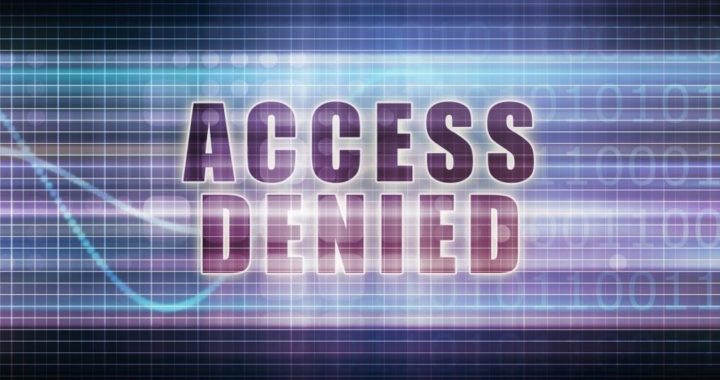Author Archives: EclipseForensics
Digital Forensics Problem-solving
In the world of digital forensics, often, the most challenging part of the process is getting to the data. You need to first acquire the data in order to analyze it completely and effectively. This is where problem-solving comes into play.
Problem-solving is an ever-evolving issue in the fields of computer forensics and mobile device forensics and will continue to be so as the industry progresses. The thing about problem-solving skills, though, is that they aren’t so much as taught as they are acquired over time with experience.
In this piece, we discuss what you need to know about problem-solving in computer and mobile device forensics. Let’s dive right into it.
Cellular Records Analysis: Going Beyond Location Data
When it comes to digital forensics, particularly mobile forensics, location data is typically what is sought after the most. This isn’t surprising considering the fact that it is the most pertinent with respect to a person’s whereabouts during an incident, as well as the timeframe for said incident. That said, there is definitely more to cellular records and its analysis than merely location data, or at least a lot more that’s ancillary to location data.
Going beyond location data provides a deeper level of analysis that can lend further validity to the records themselves, as well as any conclusions drawn from the analysis. Here’s a guide on the subject.
How is Digital Evidence Gathered?
In 2021, digital devices are quite common, with the most common ones being mobile phones, tablets, and computers. However, the emergence of IoT has made a plethora of electronic devices a source of digital evidence. For example, a digital camera can be used to view or store illegal images. The first responders in this case are digital forensic experts, who should identify and seize every electronic device to acquire evidence.
But how is this digital evidence gathered? Hear what our digital forensic engineer has to say!
Collection of digital evidence
Numerous sources can be used to collect digital evidence. Some of these sources are servers, cloud computers, USB memory sticks, CD-ROM, hard drives, digital cameras, mobile phones, computers, and the like. Some of the more non-obvious sources include web pages that should be preserved because they can change, as well as RFID tags. It’s important to ensure that extra care of data sources is taken so that nothing can modify or contaminate them as they’ll be used for digital forensic investigations.
Since the majority of digital information is volatile, it’s subject to change. Once it’s modified, identifying the changes or rolling back the data to its original state becomes a lot more difficult. Therefore, a cryptographic hash of digital evidence can be carried out and calculated. This hash must be recorded in a safe place to ensure there’s no contamination of digital evidence. This is crucial because it would allow computer forensic experts to establish whether someone fiddled with the original data evidence or not.
Imaging evidence within the electronic media
During the initial phases of the investigation, it’s a good practice to duplicate the original evidentiary media. Now, a combination of software imaging tools and standalone hard-drive duplicators can be used to fully close the entire hard drive. This can be done at the sector level, where a bit-stream copy of all parts of the hard drive’s user-accessible areas will be made. This means there won’t be any need to duplicate the file system. In order to prevent tampering, the original drive can be transferred to secure storage. While this imaging process is underway, a write-blocking or write-protection application or device can be used to make sure no information is made part of the evidentiary media during the computer forensic investigation.

Why preserving the sources of investigation is important?
It’s important to preserve the sources from which evidence is gathered so that the chain of custody remains intact. Otherwise, it won’t be possible to validate the results of the digital forensic investigation.
Turn to Eclipse Forensics – your certified digital forensic consultant
Since 2005, we’ve worked on hundreds of cases for a variety of individuals, private attorneys, and law enforcement jurisdictions. We’re ready and poised to help in the analysis and development of mobile device forensics, authenticate audio and video forensics, court-certified forensics in FL. Contact us now for more information!
Computer Forensics Expert in a Divorce Case: What You Need to Know
The role of a computer forensics expert can be crucial in a divorce case. With an experienced forensics expert, you’ll be able to help an attorney concentrate on specific data that relates to a dispute while also conducting a comprehensive analysis of insights like activity logs and metadata. Here are some things you need to know about the role of a data forensic expert in a divorce case:
They ensure data is handled safely
Similar to any forensic collection, appropriate data sources must first be identified. In family law cases, common sources of digital evidence may comprise tablets, laptops, cellphones, and email accounts. By safekeeping the data and documenting the data collection procedure, a computer forensics expert will help you ensure every piece of evidence is handled the right way.
Helps corroborate evidence
By analyzing the data through digital forensics, a computer forensics expert can establish indisputable facts in a divorce case. For example, metadata tags (especially those associated with social media posts and images), a map application, or location data may be used to acquire information on whereabouts and travel.
This can be vital in cases there are limitations on parenting time, for instance, restrictions on taking a child from a particular geography. By using location data, email receipts, mobile payment, and eCommerce usage, and financial applications, a computer forensics expert can unveil spending habits and assets. This can be crucial for alimony, child support, as well as other financial calculations related to the case of your client.
In addition, personal data can be used to identify salacious factual scenarios regarding the divorce case. In certain matters, disputes in a family may turn on inappropriate parenting practices, addiction, and proof of infidelity.
Many digital artifacts can help predict this behavior; geolocation tags and GPS data can preserve whereabouts during parenting time, mobile application use or internet history may preserve interests in a certain lifestyle or subject matter, and text message history may preserve individual conversations.
If a divorce case includes restraining orders or domestic abuse, a forensic investigation of a computer, tablet, or a cellphone can be useful for the preservation and presentation of evidence regarding media postings, messaging apps, harassing emails, text messages, telephone calls, along with other modes of inappropriate contact, as well as the associated data and time stamps.
During digital forensic analysis, technical clues are viewed within the digital environment – this is where electronically stored evidence is present. Here, a computer forensics expert examines past disk activity, artifacts of deleted files, databases preserving evidence of user activity, system logs, system caches consisting of ‘working copies’ of old files, metadata, etc.
The team at Eclipse Forensics can interpret evidence that can’t be seen on the active user files’ faces.
Advanced Digital Forensic Analysis:
In the realm of advanced digital forensic analysis, the digital environment serves as a rich repository of electronically stored evidence. A digital forensic expert adeptly navigates this intricate landscape with technical precision. Eclipse Forensics, boasting a team of certified data forensic and cyber forensic experts, stands out for its prowess in interpreting evidence that might not be immediately apparent in active user files.
Delving into the intricacies of past disk activity, artifacts of deleted files, databases housing evidence of user activity, system logs, and metadata, these experts leave no stone unturned in their quest for comprehensive insights. Eclipse Forensics’ specialized team excels in the nuanced art of handling data safely, ensuring a meticulous examination of every digital nook and cranny.
As we navigate the ever-evolving landscape of divorce proceedings, the role of a computer forensics expert proves indispensable. Their proficiency in digital forensic services allows them to navigate and corroborate evidence seamlessly, bringing to light crucial information pivotal in financial and personal scenarios. Eclipse Forensics, with its certified data forensic expert, stands as a beacon in providing court-certified forensics and expert witness testimony. This commitment upholds the integrity of the legal process, ensuring a fair and just resolution for all parties involved.

Eclipse Forensics’ uncovers and interprets electronic data for use in a court of law
Our team consists of data forensic experts and cyber forensic experts. We specialize in court-certified forensics and expert witness testimony in FL to uphold its integrity.
Reach out to us for more information!
Digital Forensics – A Guide
Ever wondered how a digital forensics team operates? How do the experts find those incriminating files or suspicious activity only using a person’s data? Here’s a breakdown of how the digital forensics process works, giving you an idea of how your own case could play out:
3 Common Digital Forensic Myths
To many, digital forensics seems like magic as they are unable to understand how experts can pull vital data from devices like a rabbit out of a hat. With dramatized depictions of digital forensics, there have been various misconceptions regarding the industry. Several creative liberties are taken, which differ wildly from the reality of it all.
These are some of the most common myths related to digital forensics, which might be crucial to know about whether you’re considering a career in the field or want to hire digital forensic experts for your case:









